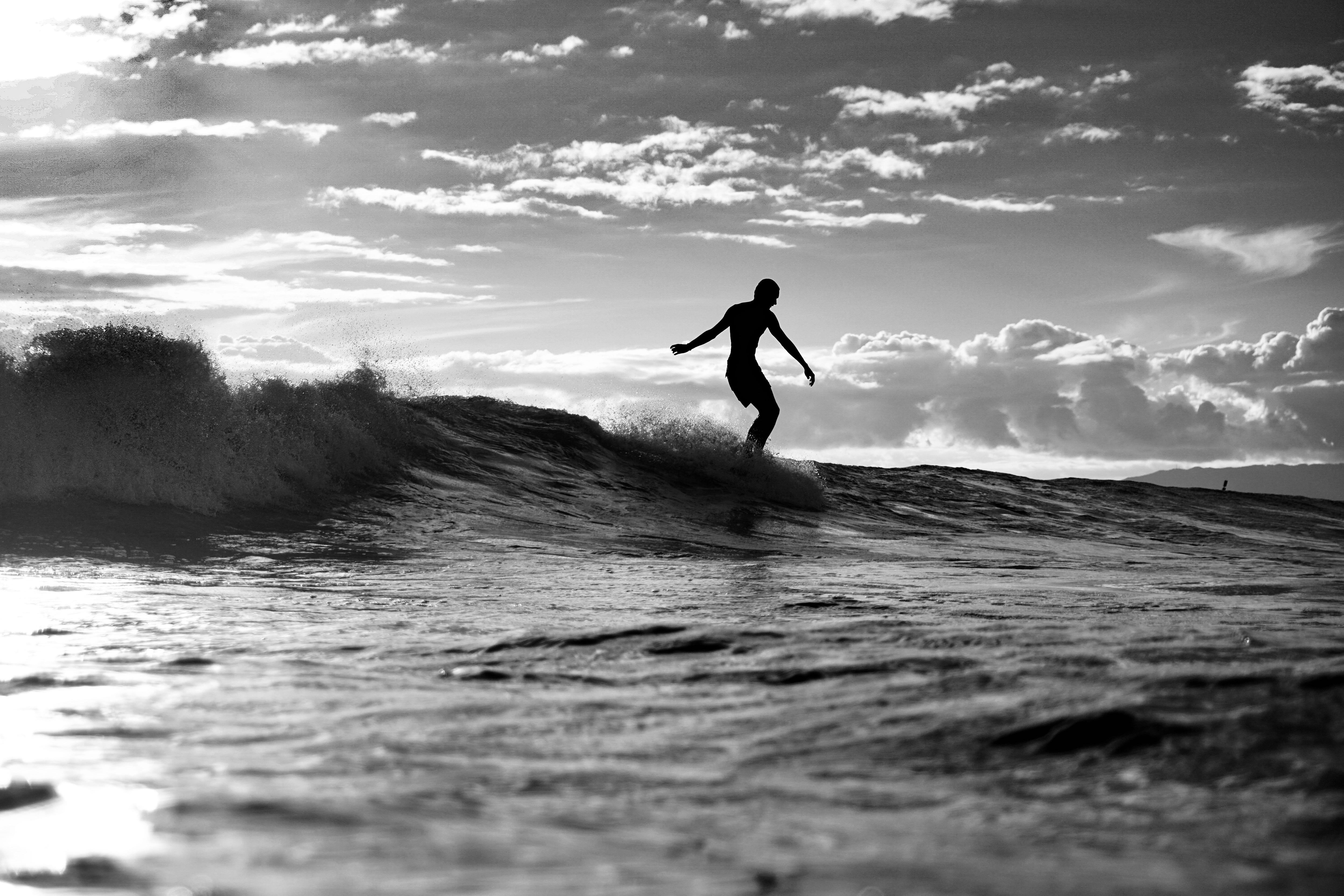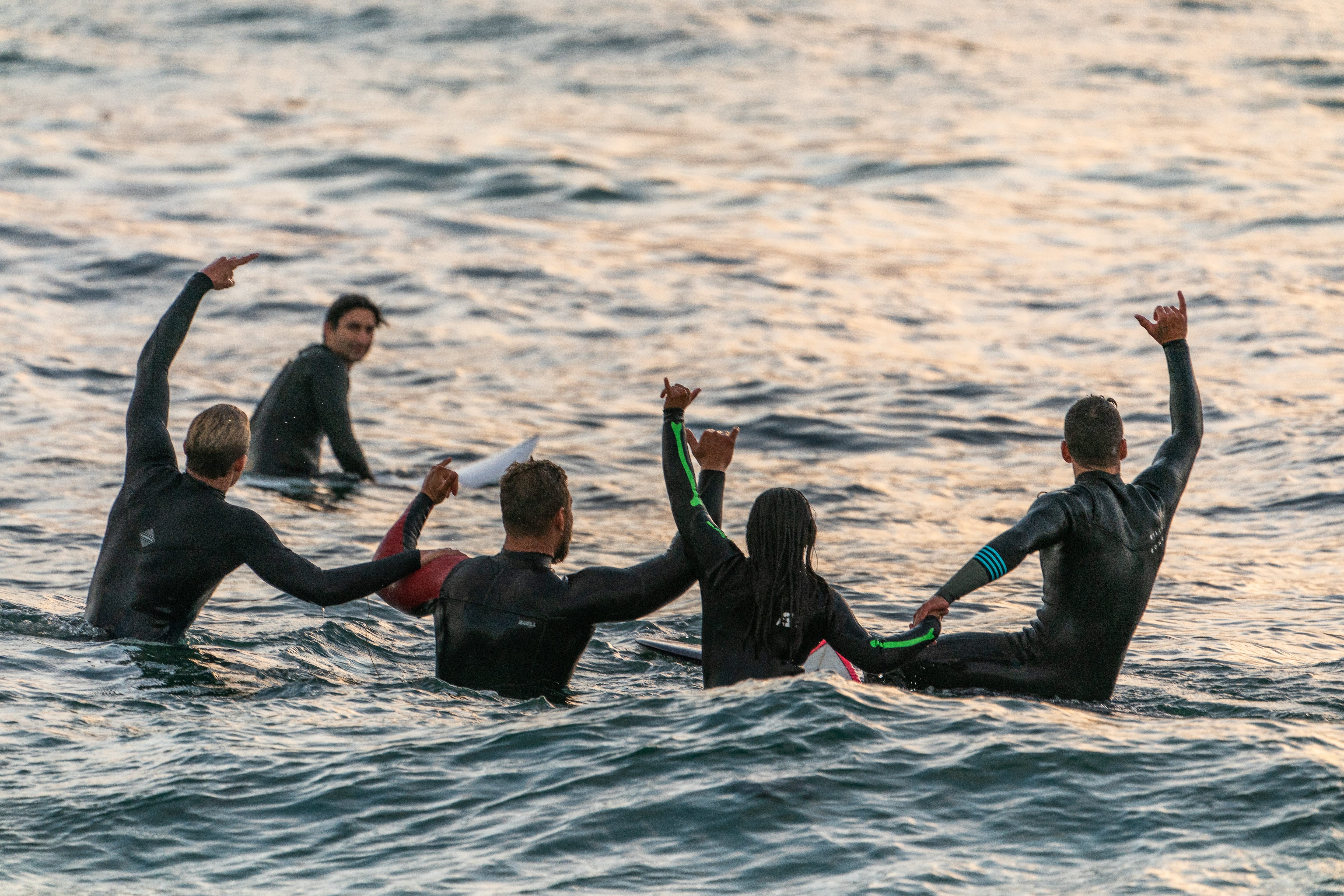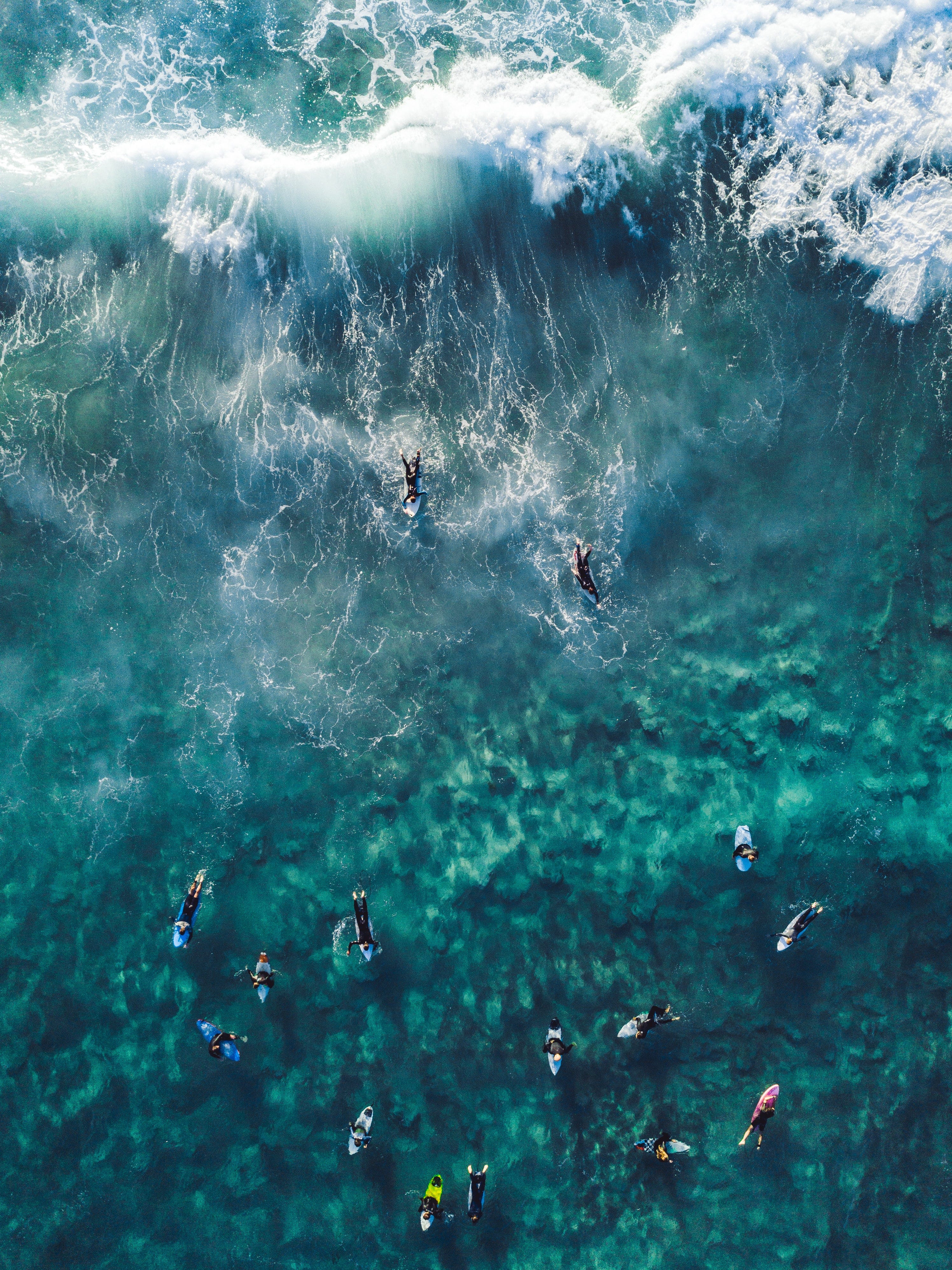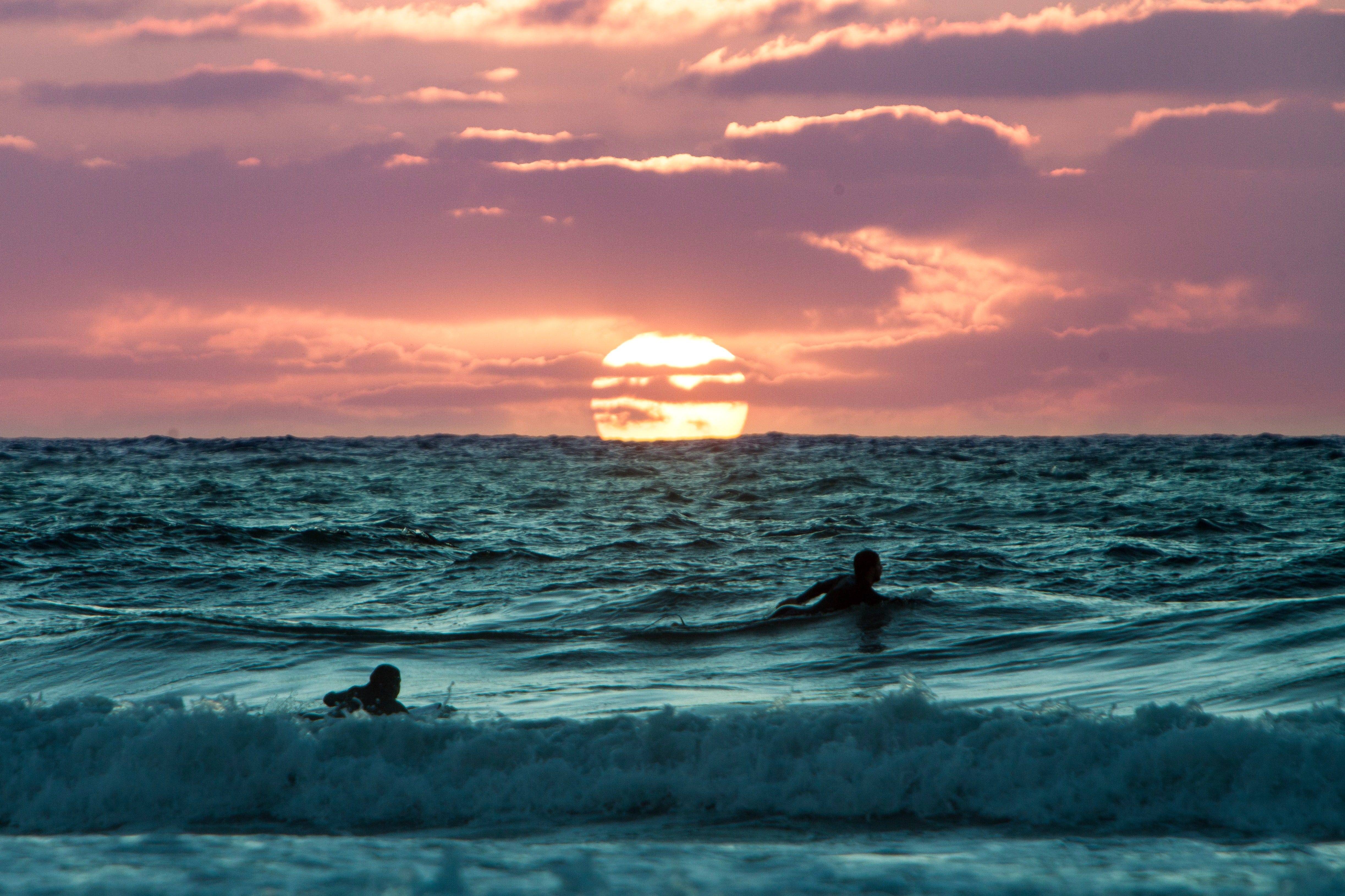Healing through the therapeutic effects of surfing
Josh Dickson, a specialist in trauma and positive psychology, shared with us his journey into building the UK's first surf-therapy retreat

‘A friend of mine and I had been on a yoga surf retreat and then went again next year. He said let’s just keep the surfing up. So, us and a bunch of friends, started going surfing in the winter in England and we were really loving it. But, I also saw how much this was helping our general wellbeing and mental health. Not only was it writing goals that we could achieve, but I really noticed what I call the forced mindfulness aspect of a sport like surfing,’ said Josh.
The journey
Josh Dickson is the Clinical Director of the Resurface programme. He is an accredited drugs and alcohol professional, Eye Movement Desensitization and Reprocessing consultant, and a licenced Heartmath coach. He has specialised in treating trauma and promoting positive psychology. The journey that took him to create Resurface has been interesting and full of different experiences.
He studied philosophy and psychology in the nineties. Then he was a musician for years until his early thirties and that was his big flow state experience. He was medium successful with his career, but he hit a point where it was time to change paths. And he wasn’t quite sure what he was going to do. He sort of fell into someone that worked as a doctor and ran a rehab. The doctor suggested Josh to work there. He started gaining experience and training as a trauma specialist. Later on, he worked at a clinic in South Kensington. ‘From there things progressed, I enjoyed doing that and then I realized that we all have this accelerated learning periods and then a plateau, another accelerated learning period and another plateau,’ said Josh.
After working on that field for five years he realized that there were missing pieces. He needed to find other ways to help people facing trauma, as some of them are very resistant. He was very inspired by Bessel Van der Kolk, and his work with psychodrama. He had been to psychotherapy retreats before, so he knew how powerful they were. He started learning more about it. He was still surfing, so he came up with the idea of combining both. He discovered that surf therapy exists, started studying it, and found a way to mix it with psychotherapy. That is how Resurface UK was born.
Photo: Trevor Gerzen
Surf therapy
The International Surf Therapy Organisation (ISTO), defined surf therapy as a method of intervention that combines surfing and structured activities to promote psychological, physical and psychosocial well-being.
According to the ISTO 2019 Impact Report, surf therapy is growing rapidly around the world. In 2017 there were only 8 programs registered around the world, which hosted 20 attendees over a period of 5 days. This year had a total of 18,620 beneficiaries. In 2019 the number went up to 35 surf therapy programs registered, which hosted 250 attendees over a period of 5 days. This year had a total of 39,294 participants.
Each of these programmes has a different target group, objective and location. To give some examples Waves for Change is based on South Africa, and their programme focuses on improving children's wellbeing through skills to cope with chronic adversity.
Live for More is a New Zealander organization that works with high-risk young people who are disengaged from society. These young people are caught up in lifestyles of drugs, alcohol and crime and they have slipped through the cracks of conventional intervention. The purpose of Live for More is to empower these young people to find freedom from their troubled pasts and be inspired to live positive and fulfilling lives.
Resurface UK offers therapeutic retreats in the UK and Morocco. Most organizations that offer surf therapy use surf as the therapy. What differentiates Resurface from others is that surfing is used as the mean to make psychotherapy faster, deeper, and more effective. The retreats are usually five to three days long. There are three different types, the main one is the trauma resolution retreat, but they also offer the creativity and resilience, and flow ones that are very fun. The format is the same, the content is what changes. The day begins with trauma sensitive yoga, followed by breakfast, a workshop, surf lessons, a big group experiential meeting and a deep relaxation session.

A day in the retreat
Trauma sensitive yoga was developed by David Emerson, it is about reconnecting with your body. People who are highly traumatized become very disconnected from their bodies. In this class, the teacher never leaves his/her mat, so they will never come to touch or adjust you because that is considered a violation of space, especially for traumatized people. The goal is to encourage people to bring back their own sense of agency. This yoga uses a lot of invitational language like ‘maybe you want to join us in this position now’. That way the client begins to learn that they have choices, because often they come from a place where choice is limited, inexistent or they think they don’t have it all. It may not be true, but that is what they have integrated.
Afterwards, breakfast is served. Then there is a workshop on what is trauma and developmental trauma. Followed by the surf lessons and, by the end of the day there is a two-hour big group experiential session. The purpose is to promote and create a corrective experience.
There are two types of trauma, the developmental one and the Post Traumatic Stress Disorder (PTSD). PTSD is what happened to you and developmental trauma is what didn’t happen. So, with PTSD you remove flashbacks, symptoms, intrusive thoughts, dysregulation, etc. Developmental trauma are the wounds and the neglect. The goal of the corrective experience is to repair neglect. Afterwards, there is a stretching and non-sleep deep rest protocols, which are all about getting into a very deep state of relaxation. Research shows that learning is integrated in deep sleep or very deep rest states.

Is the change sustainable?
So, the day is quite full on, you have education in the morning, surfing, group therapy and then you get to integrate everything. It is quite intense therapeutic work, but it is also fun. It is very important that people transfer this to their daily life, otherwise it wouldn’t create a real change. Josh said that there are two key factors. One is that there is a lot of focus on aftercare, quite a few people ask him to refer them to a therapist, support groups or just an activity like yoga. The second factor is goal setting. People get an introduction to it during the retreats, they set little goals for the surfing lessons and achieve them, which is fundamental to improve their self-esteem. Usually, when they’ve realized they’ve done something hard and it was fun, they can think that they could do the same with their daily tasks.
Resurface welcomes people of any age, gender, and background. At the beginning, Josh thought that the population for these retreats was going to be more specific but he has been pleasingly surprised. Ages range from 15- to 73-year-olds from different backgrounds. There is one upcoming retreat on the 28th May 2022 in.To find more information about them, go to Resurface Retreats.



